Configuring Global Variables and Equations
In April 2022, CATI’s Sr. Application Engineer Roger Ruffin gave a presentation on using Global Variables and Equations in SOLIDWORKS. If you missed it, or want to review it again, please sign up to watch the recorded video. It was a good introduction to adding automation to our SOLIDWORKS part model.
We received multiple questions on how configurations fit into this topic So, how do we configure global variables and equations? If you are interested in finding out, keep reading.
Variable setup
Our example has the following defined.
A Global Variable for the wall thickness:
“W”= 3
An equation that sets the wall thickness dimension to the Global Variable:
“Wall_Thickness@Shell1″= “W”
An equation that defines the outer fillet radius as the sum of the inner fillet radius plus the wall thickness:
“Outside_Radius@Fillet2” = “Inside_Radius@Fillet1” + “W”
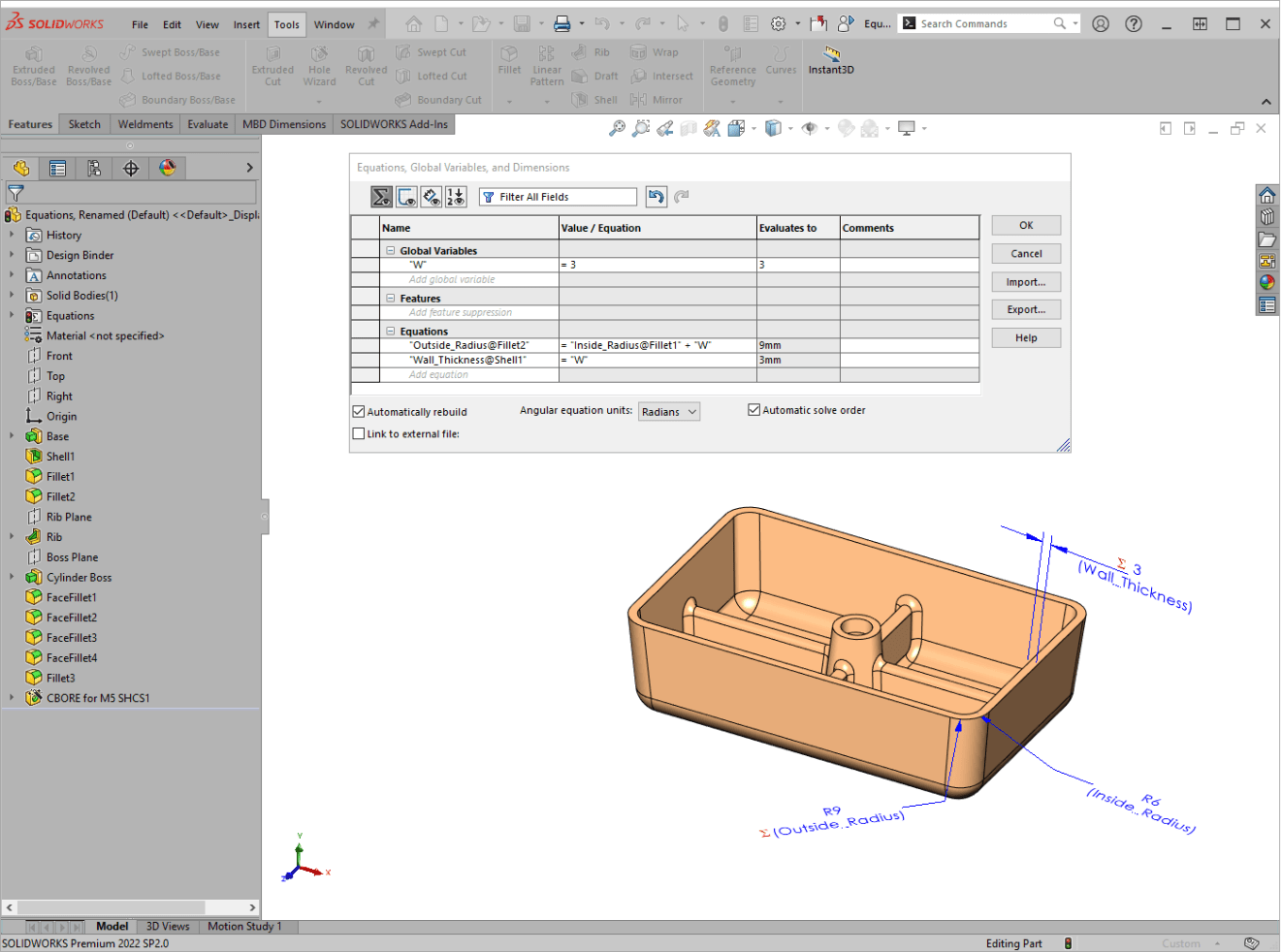
As we change the wall thickness global variable the outside fillet updates automatically.
Configure the variable
Now that we have confirmed this works as expected, let’s configure it. Create the configurations using the method you prefer. I used Add Configurations in the ConfigurationManager for this example.
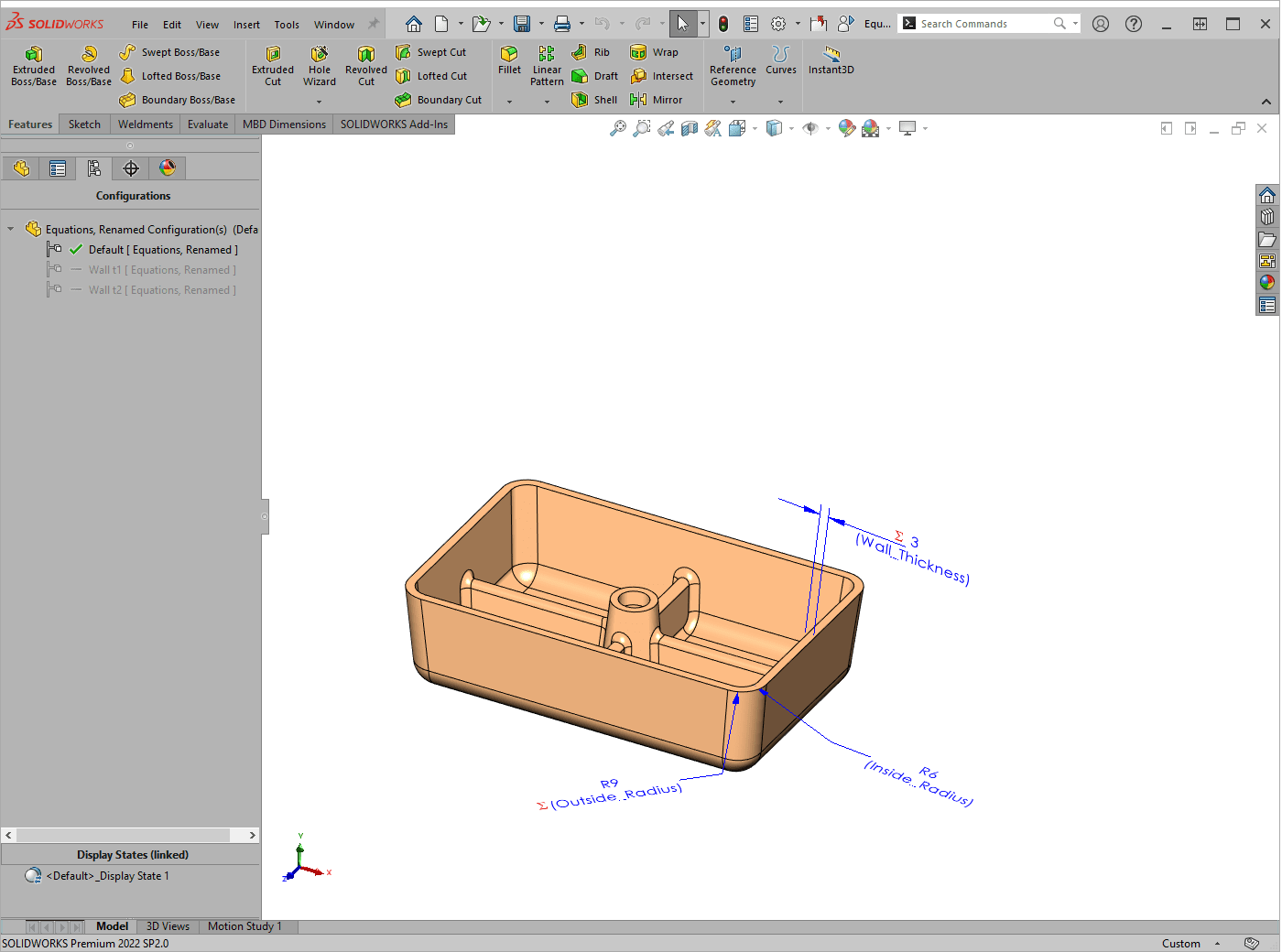
When the model has multiple configurations, the equation dialog box has a configuration dropdown list. This allows changing the active configuration without leaving the window.
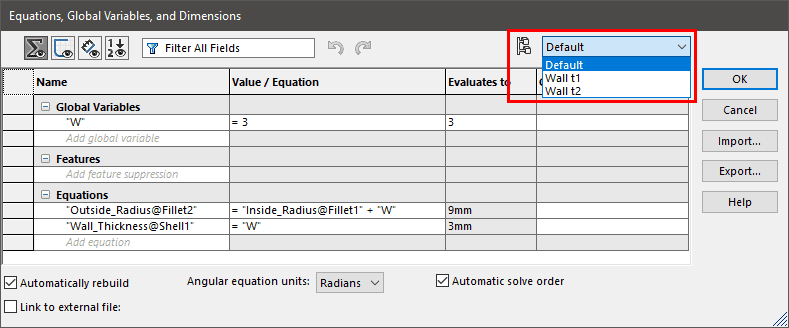
When working in the equation editor the configuration button is now available. This is no different than configuring a dimension and the behavior is the same.
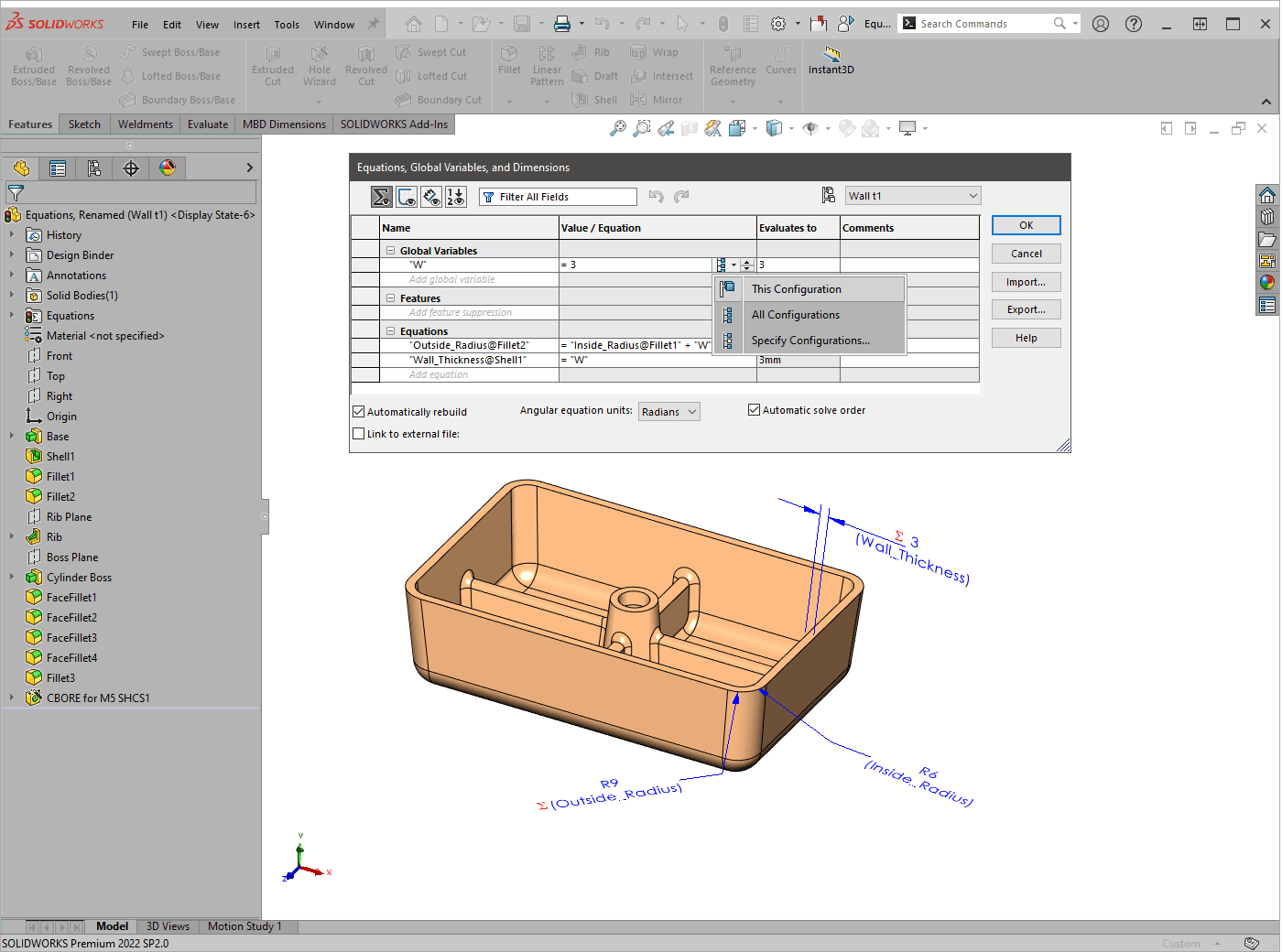
After changing values and switching configurations, the following message may pop up. Nothing to fear, the changes are saved to the current configuration while switching to the next. If you prefer to no longer see the message, select Don’t show again.
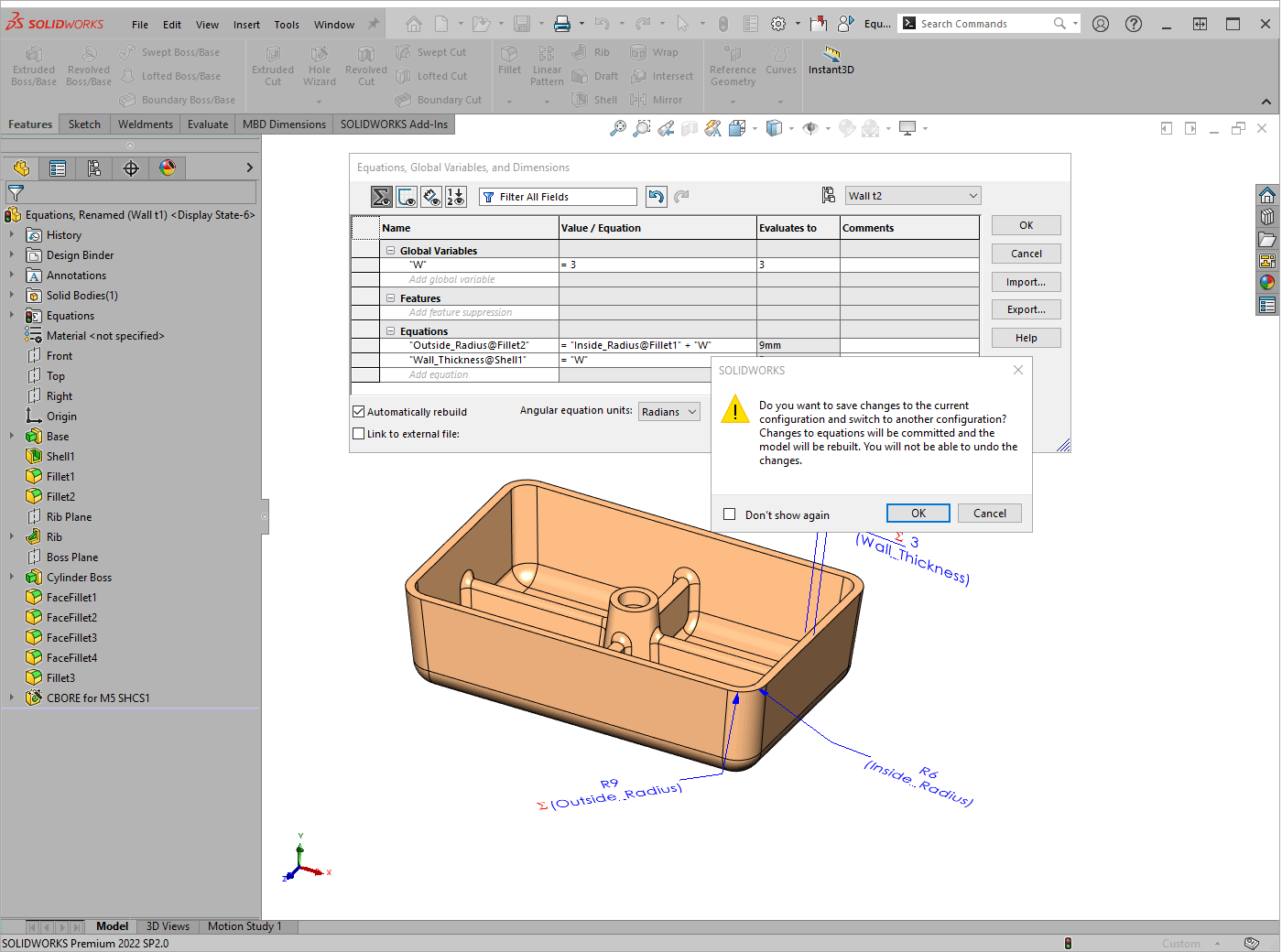
In little time, we have created configurations that call unique values for the Global Variable “W.”
Feature Suppression
Feature suppression is also available in the equation editor window. Select the feature to control, select the desired state from the drop down, or type the text.
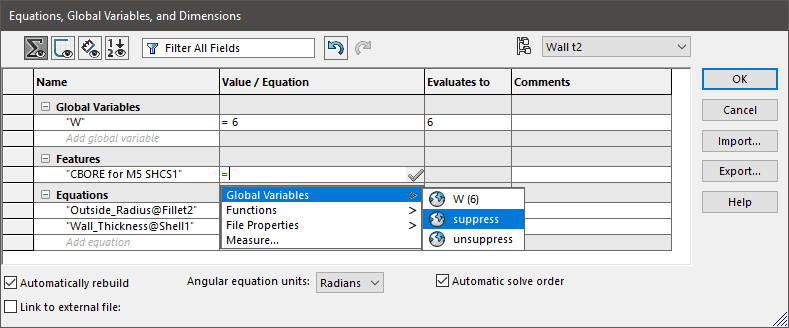
Select the configuration settings and you are done.
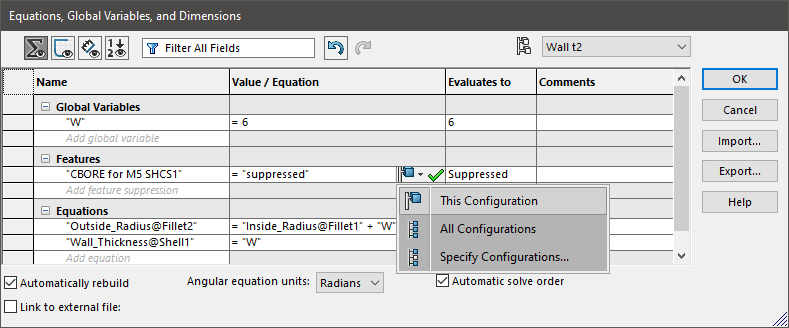
Design Tables
Once the global variables and equations are defined and configured, a Design Table can be added for even more control. The parameters are automatically added to the table as expected.
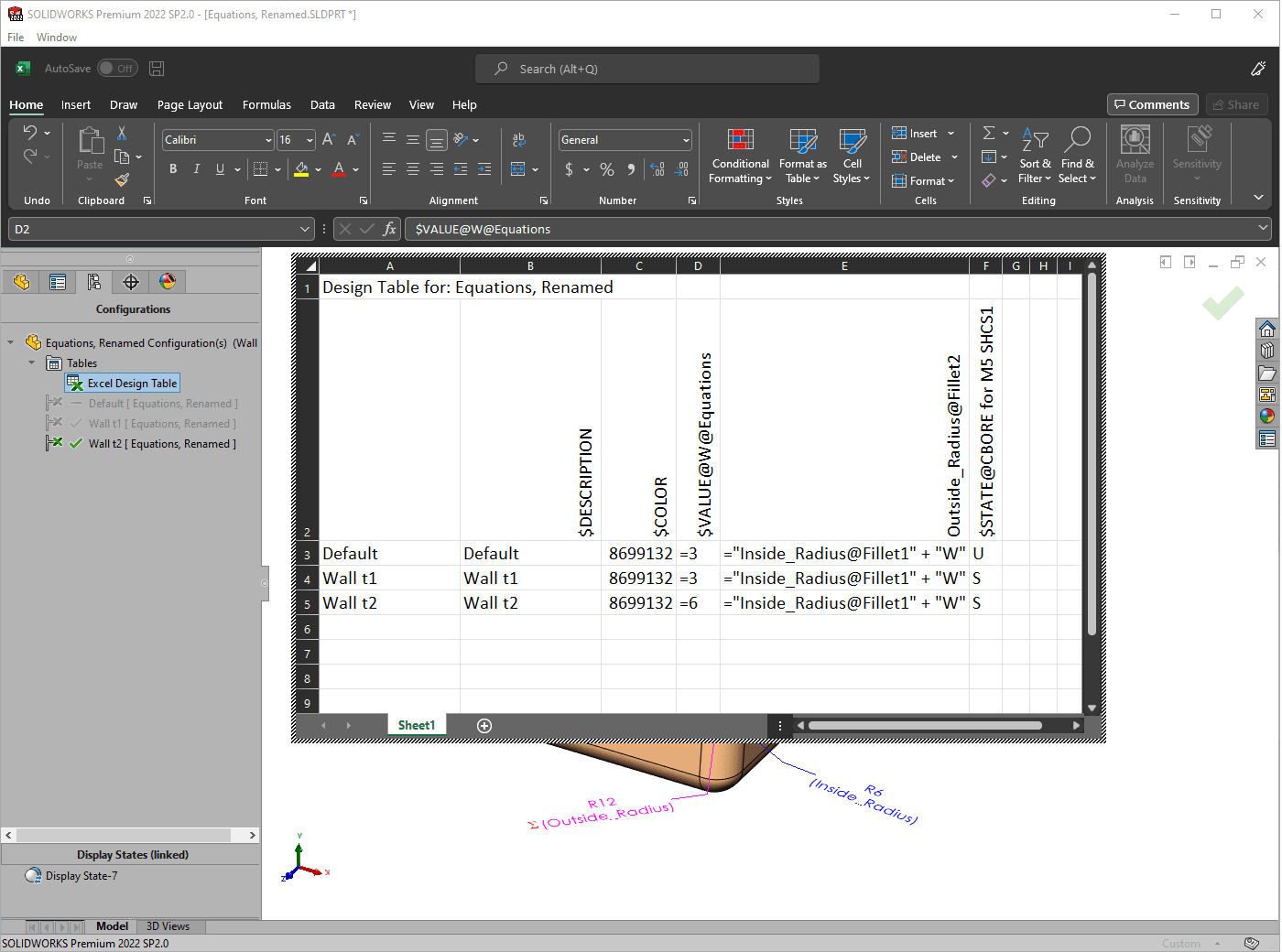
Hopefully, this overview help you better understand how configurations and global variables work together. Thank you for reading.
Kris Dubuque
Sr. Application Engineer Manager
Computer Aided Technology

 Blog
Blog